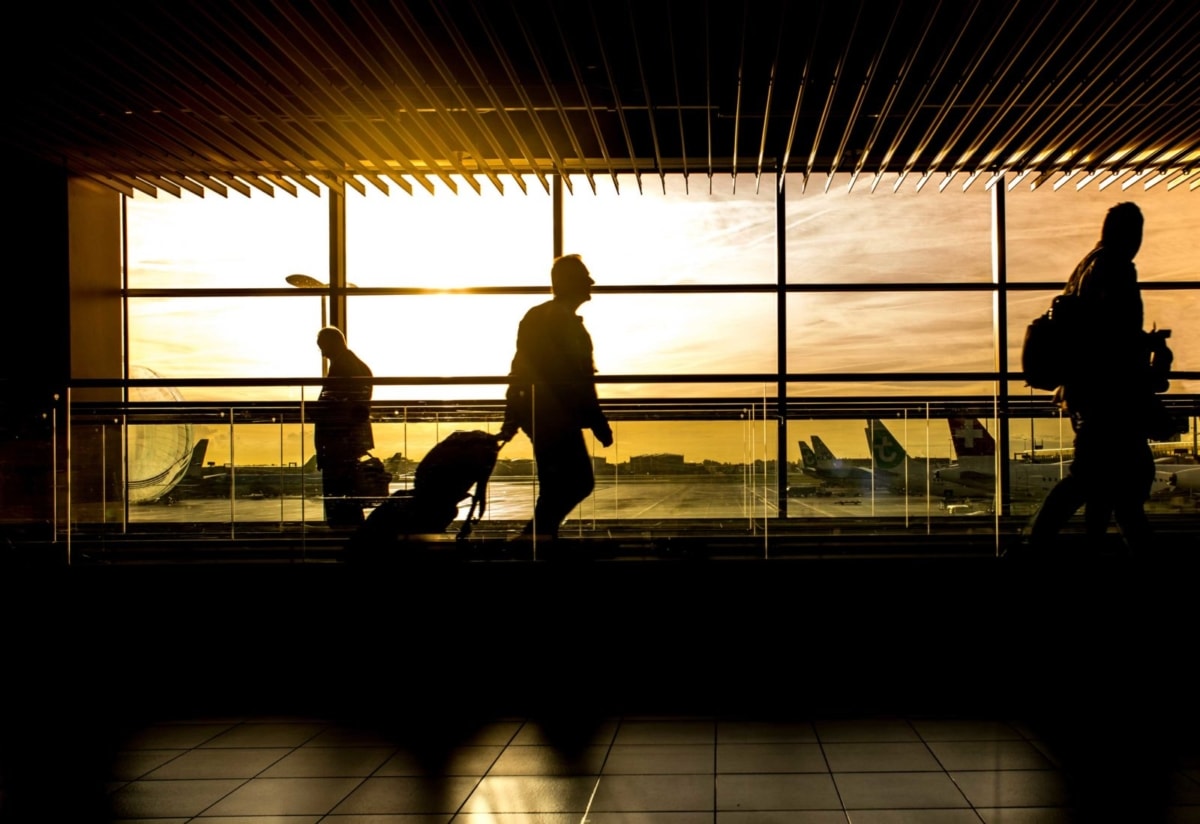While you are traveling, you are especially vulnerable to travel scams, theft, and exploitation. I’ve seen many different ways people take advantage of travelers, and I know it always helps to be on your guard. Here are some of the best pieces of advice I’ve learned (some of them the hard way) for staying safe on your trip.
1. Always Count Your Cash
Whether you’re exchanging currency or getting change for a purchase, one of the most common travel scams is when someone sneakily gives you the wrong amount of cash back. If you’re in a foreign country, you may not be totally familiar with the bills, so it’s easy to get hoodwinked.
The simple solution for this is to always, always, always double-check the amounts. If you are exchanging money, know the exchange rate beforehand, count your cash, and know how much you expect to get back. Then, count it after you get it to ensure it’s the right amount. It never hurts to count again.
2. Be Careful with QR Codes
QR codes have become increasingly prevalent, especially since the pandemic. We use them to pull up restaurant menus, check in for appointments, look up product info, and even pay for parking.
The problem with QR codes is that they are a super easy way for fraudsters to direct you to malicious sites where they can steal your personal information. Worse yet, it’s difficult to tell whether a QR code is legit or not. Frequently, scammers will place QR code stickers over the top of codes from trustworthy sources. Even if a code looks like it’s from a real source, it may have been tampered with to take you to a malicious site.
According to ExpressVPN’s QR code study, cybercrime is on the rise, especially in scan-to-pay situations. Fortunately, they also outline some steps you can take to stay safe:
- Only scan from trusted sources: I’ll admit it, QR codes are kind of fun. You point your camera at something, and then a website pops up. Magic! But don’t just go around scanning willy-nilly. Make sure you know who posted a code and where it leads before you scan it.
- Watch for QR code tampering: Watch out for codes that have been inked over or stuck on with a sticker over the original.
- Check the URL: Most phones will let you see the web address of a QR code before opening the page. If the link looks fishy, don’t go there.
3. Watch Out for Fake Police Officers
A few years ago I flew into South Africa for a three-week trip and was picked up by family at the airport. As we drove away down the highway, a police officer stepped out into the road, waved us down, showed us his badge, and informed us we’d been speeding.
He went on to show us the amount we would have to pay for the ticket. It was a hefty price, over $200 USD. But then he asked, “How much do you think you should pay?” He offered to take a much lower amount and asked to be paid on the spot. Not knowing better, we handed over the cash, and drove on our way.
Later, a bit of research told us that this is a very common scam in South Africa. In many countries around the world, people will dress in police uniforms and pull people over as an easy way to make money.
If you are ever pulled over by police abroad, never give them money directly. If they give you a fine, tell them you’ll go to the police station to pay it.
4. Don’t Overpay for Taxis
Tourists often stick out like a sore thumb, and it’s common practice in many places for Taxi drivers (and others) to inflate their prices for out-of-towners.
The best way I’ve found to avoid being overcharged is to know beforehand how much a given ride should cost. Ask the hotel front desk staff, “How much should a taxi to _____ cost?” That way, if the driver tries to charge you quadruple, you know they’re ripping you off.
In many less-developed countries, taxis don’t have meters, and drivers just name a price for a given destination. In these cases, always make sure you know the price beforehand. If you know how much it should cost, you can negotiate to get a lower price.
5. Tip, But Tip Cautiously
If you’re walking through an airport in a developing country, and a friendly man in an official-looking vest asks if you need help finding your gate, just know that he expects to be paid. I’m always a fan of giving tips to people, but sometimes they can go a bit overboard and charge you for things you wouldn’t expect to pay for, like pointing to the bathroom!
My advice? Give tips generously, and don’t accept help from friendly people unless you’re okay with tipping them.
6. Never Show Your Cash
I flew to Nepal with a group of university students a few years ago, and we had a Nepali group there to meet us at the airport and help carry bags and equipment. The problem was, several random people started joining in and carrying bags.
When we got out to the parking lot, those who weren’t actually in our party started demanding tips from the students. One kid pulled out his wallet and started rifling through cash to give a tip. Suddenly, one of the strange Nepali guys reached in, grabbed all the cash, and ran, disappearing into the crowd.
Moral of the story? Don’t ever pull out all your cash in public. Just. Don’t.
7. Use an RFID-Protected Wallet
Most people have probably heard of RFID theft, where a thief uses a scanner to get the information right off your credit card without even taking it out of your pocket. These scanners can also get info from your passport!
The way to guard against this is to get an RFID-blocking wallet. These wallets are made of a special material that blocks radio frequencies so your cards can’t be scanned. The Harber London Travel Wallet is perfectly sized for both your passport and cards, and it keeps your info protected from scanners.
8. Be Careful with Public Networks
If you connect to public WiFi, it isn’t too hard for cyber thieves to hack through the system and steal personal information from your device. Make sure you double-check the network name at a hotel or restaurant so you don’t accidentally join a fake.
Also, always hit “do not trust” on your device when you connect to public networks. This doesn’t guarantee safety, but it does prevent broadcasting personal information.
9. Ask the Locals
My top tip for avoiding scams while you travel? Get to know local people at your destination, and ask them for their advice. If you have someone you trust who knows the local customs, they can help make you aware of any potential problems and how to avoid them.
There are definitely potential risks while traveling, but with some forethought, a bit of common sense, and some insider knowledge, you can avoid scams, worry less about security, and focus more on experiencing a new place.

